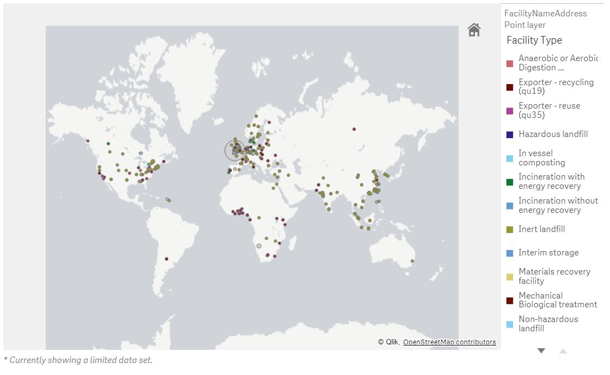OPINION: With the BBC’s Hugh Fearnley-Whittingstall’s War on Waste programme attracting high audiences and developing the message of the need to reduce reliance on plastics, Sam Reeve, CEO, Resource Futures argues that more transparency is needed.
Watching BBC’s Hugh Fearnley-Whittingstall and Anita Rani uncover UK plastic waste exports dumped in the rainforests of Malaysia was difficult viewing. Part exasperation at the ethical implications and social impacts on local communities. Part anxiety about the reactions of British consumers who we know are less inclined to recycle if they don’t believe their actions make a difference.
But transparency is exactly what we need in the waste sector and why I have supported the Resource Association’s ‘End Destination Charter’ since it was announced in 2012. Frankly, it is long overdue.
Accountability
With transparency comes accountability and that is usually enough to stimulate action. The fact of the matter is councils and producers need to take responsibility for ensuring materials are recycled ethically. Sadly – the voluntary status of the Charter has not been enough to secure organisations’ widespread commitment and perhaps that is indicative of why we find so many legislative mandates on the table now.
This is not all about exports being bad, however. The system is complicated and fragmented. It is not easy to know what the right decisions are. But we have a major system flaw. The ability to track waste once it leaves UK shores is pretty near impossible and that opens the door to illegal operations. The good news is the change to the Basel Convention, an agreement controlling the movement of international hazardous wastes, where a country must obtain permission to export waste is a big step in the right direction. This should have a significant effect in reducing the export of low-quality plastic waste.
Irony
The irony may be the degree to which our councils and producers need to demonstrate transparency, which is realistically only a Freedom of Information request away. How far will one investigative report on illegal UK plastic exports reaching Malaysia go to taint an entire sector who could otherwise inspire public confidence sharing data on where its entire plastic waste arisings end up?
Wales is leading the way. The website My Recycling Wales is a good example of how we can share this information to consumers with clear, unambiguous language such as ‘Where does my recycling go?’ and simple digestible visuals and charts.
Figure 1. Destinations of Wales’ recycling by country, 2017-18, taken from My Recycling Wales.
Modelling
Our own waste flow modelling at Resource Futures shows, at a glance, the journey waste makes and where it ends up across the globe. Imagine the potential of a national, dynamic tool sharing this information for all UK authorities, enabling stronger, more ethical decision making and inspiring broad public confidence.
And yet, data is just one piece of this complex puzzle. Taking the waste hierarchy aside, the need to reduce and reuse, there still remains fundamental problems with the state of UK recycling. UK wide harmonisation of kerbside pick-ups may help and other measures such as Extended Producer Responsibility (let’s leave that debate for another day). But at present, there simply isn’t the UK infrastructure to support a high functioning, high quality recycling system where our plastic waste can be dealt with within our own boundaries. In March this year, a report by packaging producer DS Smith concluded that the UK will not be able to meet its 2035 recycling targets citing lack of investment in recycling as a key challenge. As spending on recycling has dropped, councils are being forced to make choices based on budgets rather than quality – a factor which can only serve to exacerbate the potential for illegal waste exporting to developing countries.
So, while the BBC’s War On Plastic makes for uncomfortable viewing, increased transparency has to be the way to go. Nonetheless, without investment and inclination to scale UK capacity, our local authorities will still face the same challenges – where to export safely, ethically and at what cost? Alongside transparency, it’s clear we need transformation too.
The post War on Plastic: the time for transparency has come appeared first on letsrecycle.com.
Source: letsrecycle.com Plastic




